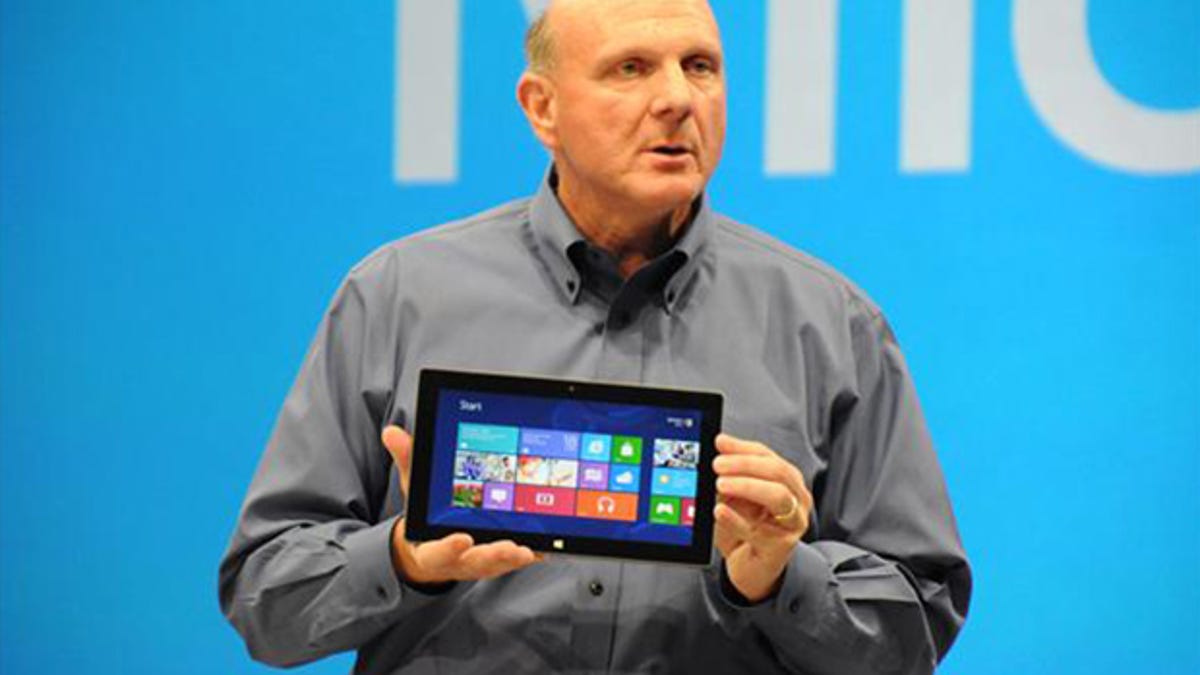Acer begs Microsoft to 'think twice' about Surface tablet
The CEO of the Microsoft partner tells the Financial Times that the competition would have "a huge negative impact" for the computing ecosystem.

Microsoft knew it was going to ruffle the feathers of some of its manufacturing partners when it unveiled plans to produce its own tablet computer, but now the feathers are starting to fly.
While the Surface is Microsoft's attempt to compete with the iPad and the slew of Android tablets on the market, the tablet will also be competing with similar devices from Microsoft's own partners, which were not informed about the Surface until just before its announcement in June.
That new competition led Acer CEO JT Wang to tell the Financial Times that Microsoft's plans to launch its own tablet in October would be a "negative for the worldwide ecosystem" in computing and beg the software giant to rethink the move.
"We have said think it over. Think twice," Wang is quoted as saying. "It will create a huge negative impact for the ecosystem and other brands may take a negative reaction. It is not something you are good at so please think twice."
Wang went on to suggest that if Microsoft moves ahead with its tablet plans, the Taiwan-based Acer might replace the software giant as a partner.
"If Microsoft is going to do hardware business, what should we do? Should we still rely on Microsoft, or should we find other alternatives?" he is quoted as saying.
CNET has contacted Microsoft for comment and will update this report when we learn more.
This isn't the first time Acer has criticized Microsoft's tablet ambitions. Oliver Ahrens, Acer's senior VP and president for Europe, Middle East and Africa, told Reuters soon after the Surface's unveiling that Microsoft's strategy to take on Apple with the Surface tablet will fail.
"I don't think it will be successful because you cannot be a hardware player with two products," he said. "Microsoft is working with two dozen PC vendors worldwide, including the local guys, whereas Apple is alone, it can more or less do what it wants."
In its recent annual report, Microsoft indicated it was aware that developing Windows for both PCs and an increasing array of mobile devices might negatively affect its relationship with original equipment manufacturers.
"Even if many users view these devices as complementary to a personal computer, the prevalence of these devices may make it more difficult to attract applications developers to our platforms," the company said in its filing with the SEC last month. "In addition, our Surface devices will compete with products made by our OEM partners, which may affect their commitment to our platform."

